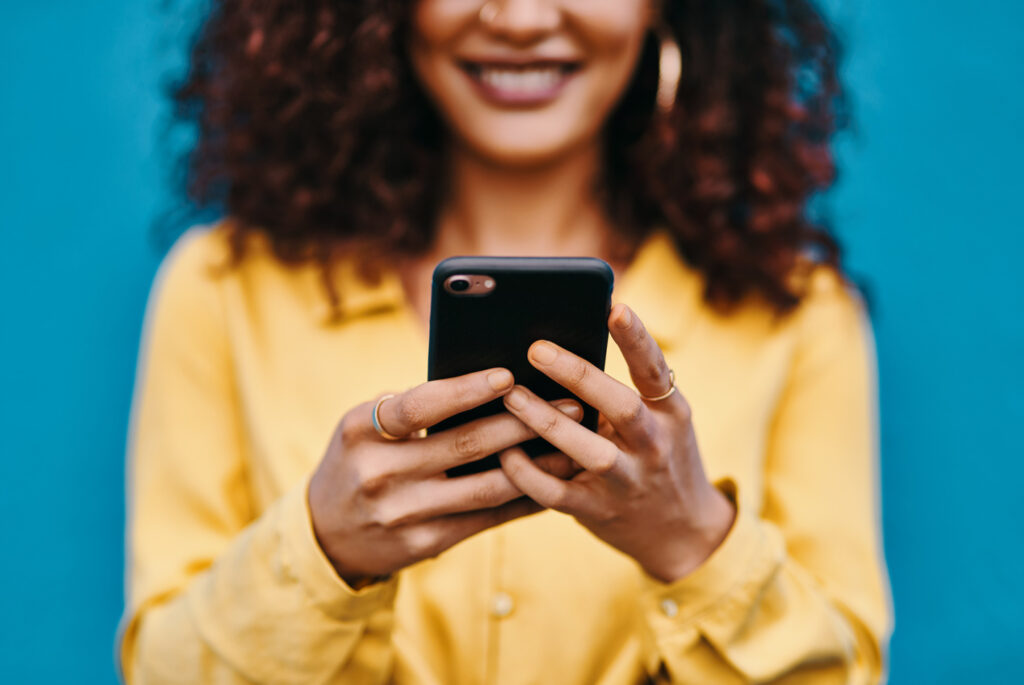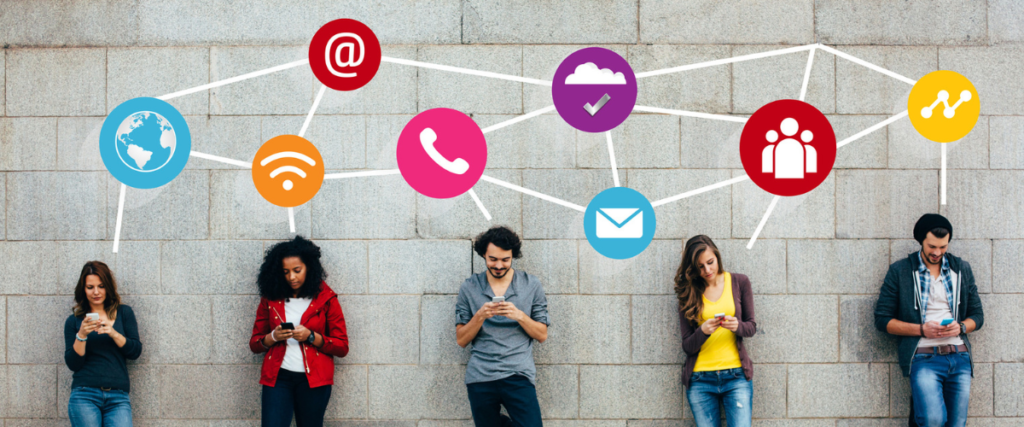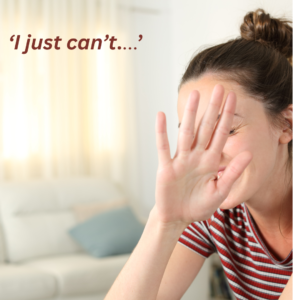Parents often ask us about their child’s use of social media during recovery. They also wonder if perhaps messages viewed on social media contributed to their child developing an eating disorder.
Let us look at the paradox of social media – social media can be both very dangerous and detrimental and also helpful and assist recovery.
Can social media cause eating disorders?
We often hear a similar story – “during the pandemic our daughter/son got into healthy eating and fitness; they followed a lot of fitness influencers, started to cook healthy foods and did online work outs. At first, we encouraged it, but soon enough it turned into an obsession around exercise and food restrictions of food”.
How much of a typical day do most people spend consuming media?
- Worldwide, the average person spends 2 hours and 27 minutes on social
media each day - In 2020, the US population spent an average of 474 minutes per day consuming digital media. This comes up to seven hours and 54 minutes and accounted for 58.9 percent of the total amount of time spent by US consumers on media consumption per day.
Is it just a matter of exposure or is there something special about social media and the brain?
With social media, contrary to traditional media like TV and magazines, we are not just passive consumers. We become active creators; we feel present in the virtual space – and this creates a much stronger psychological effect. Social media usage activates the reward circuits in the brain and can influence our behaviour and change our beliefs and attitudes much faster and more significantly than traditional media. Beliefs and attitudes are harder to change than behaviours. This can be both good (when the changes are positive for us) or difficult (in this case we know that most of the social media content objectifies bodies and presents an unattainable body ideal).
Social media algorithms create a disordered eating echo chamber – you are fed more and more of the same, which can create an illusion that this is the only right way to think about food and body.
Social media usage must be discussed, and the content often changed if one wants to be successful in recovery.
Park (2005) suggests that time spent on websites with similar content can bolster beliefs that thinness is the norm (in reality it is rare). It can reinforce unrealistic, dysfunctional body image ideals, leading to even greater body image disturbance, which in turn can exacerbate disordered thinking or eating. Meaning that social media use can trigger eating disorder behaviours.

We know from science that exposure to thin-ideal media images increases dissatisfaction with our bodies (Homan et al. 2012). As a culture, we are now consuming an alarming number of hours on social media. If we are vulnerable in any way, it can have serious consequences for our mental health and change our eating and exercising patterns. How we create our body image and what contributes to that is a very complex process. Media influences are just part of a long list of determinants contributing to how we think about our body, how we feel in it and how we imagine other people evaluate it.
So even though we all consume much more media and social media, not everyone suffers from an eating disorder. Individual predispositions (genetic and biological) and vulnerabilities (developmental stage, stress and traumatic events to name but a few) cannot be overlooked.
What is dangerous though, and something we were not exposed to before, is the social media algorithms. These can strengthen and reinforce vulnerabilities. There is no ethical governance over companies’ social media practices. Because of that they often prey on and target vulnerable people. Example : someone’s vulnerabilities (low self-esteem, being bullied, feeling lonely) drives them to turn to social media for self-validation regarding social attractiveness. Once you choose certain content you will be fed more and more of the same. Which, in the context of body image, equals more body ideal (unattainable) content that makes you even more insecure.
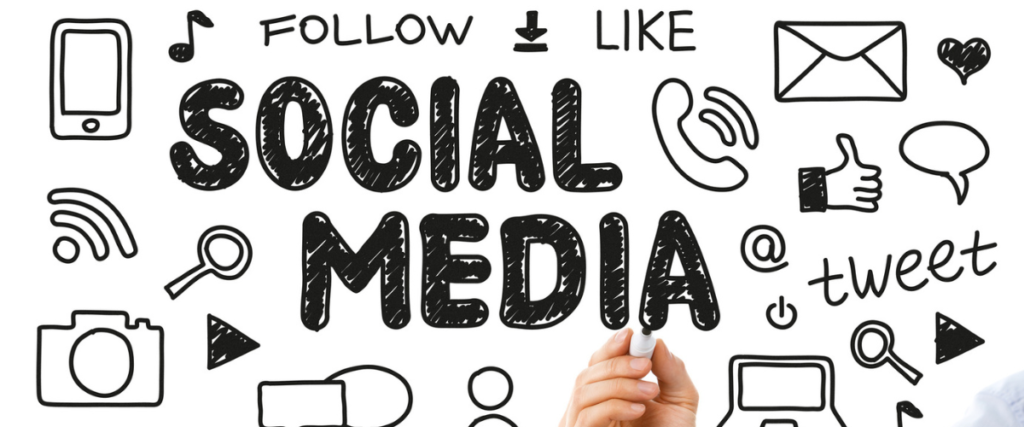
Should we forbid any social media use or control it?
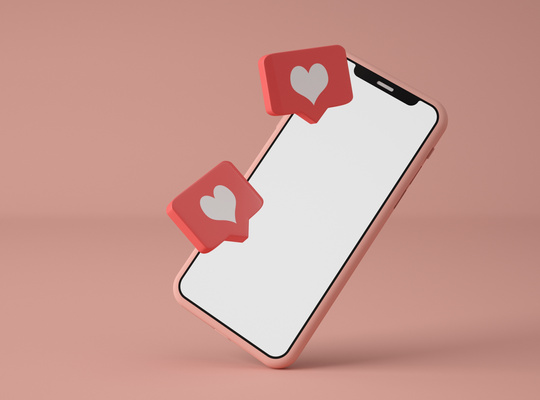
Hmmm….. do you think you can win this war with your loved one?
Young people are usually more skilled and fluent in the social media world they can use apps that look like a calendar or camera and hide something else.
We do not recommend you fight and enforce rules – we would suggest having a lot of conversations and becoming curious together. If something that they consume is indeed good for them at all, it is still good at this time. For starters, watch a Netflix documentary about social media called “Social Dilemma”. You can also buy access to another good documentary about body
image and media called “The Illusionists” https://theillusionists.org/watch/
Both documentaries are shocking (in a good way) by exposing the manipulative and exploitative side of mainstream media and social media. It is especially important to help them to not engage in pro-Ana sites (actively promoting anorexia). Equally damaging are the Thinspiration ones. In recovery we are focusing on rewiring the brain and helping the brain to listen less and less to the eating disorder rigid rules and ideas. Pro- Ana sites contain 3 core themes :
- Perfection (linking thinness with perfection)
- Transformation (claims that ED can help transform an individual from
- “hated and fat” to “desired and thin”)
- Success (association of strength with one’s ability to keep the weight off)
Remember the importance of the language here – if you sound less like you enforce, forbid and demand and more that you want to SIMPLIFY, help and support, it will be more effective.

Does it affect men and boys?
- Men also report how sociocultural factors (including media depictions) can influence body image concerns
- The male body ideal is more variable than the idealized female image, containing features of leanness, strength
(“ripped”) muscularity and height. - Although much less is known about male consumption of media and its effects on men, research has reported positive
correlations between consumption of media and body dissatisfaction and the use of muscle-enhancing supplements
(Levine and Chapman 2011).
What we need to do to be more mindful users and what we need to teach our kids:
- We need to learn to regulate emotions by having a range of coping skills and distractions, not just turning to social media for that
- We need to be critical consumers of technology – learn about the dangers and how it is used unethically and can manipulate our choices and behaviours
- Body Image issues have a lot to do with low self-esteem. We need to help kids believe in themselves and not evaluate their worth through their looks only
- We need to model value-driven choices, not consumerism
Can social media/Apps and devices be used positively in recovery?
Yes
When we use social media for connection – staying connected with family, friends and peers. For example, adults who don’t live together with family members can use texts/video calls as prompts for eating. Parents of adolescents often use the same idea to support their loved one when they are away or out with friends. Talk to your loved one about it – that they can text you or call when they feel bad, when they need extra support to eat or finish meals. Media and social media can be great when we use it for stress release. Meaning – looking for funny. Have you seen the funny goats and sheep video?
I can’t think of a better distraction than to spend time finding crazier andfunnier animal videos!
There is a great App https://apps.apple.com/us/app/rr-eating-disordermanagement/id457360959
That is free and can be shared with professionals.
More resources:
Some podcasts worth listening:
- Eating Disorder Recovery Speakers with Kristen Brunello is a podcast that presents a recovery story one week and then the next week an interview with the person who told their story the previous week. Kristen Brunello is a recovery coach who is also in recovery from an eating disorder.
- New Plates – Laura Collins is a podcast to support parents in collaborating with their child’s eating disorder treatment. Laura Collins Lyster-Mensh is a long-time parent advocate and author of Eating with your anorexia: How my child recovered through family-based treatment.
- Eating Disorders Recovery Podcast with Tabitha Farrar provides a variety of content including recovery stories, personal stories, and interviews with leading experts in eating disorder treatment. Tabitha Farrar is an eating disorder recovery coach who recovered on her own from anorexia.
